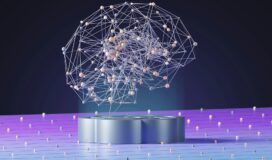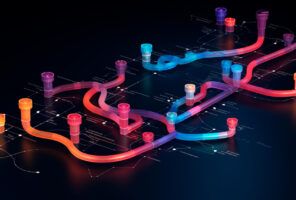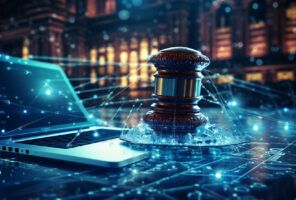The Role of Artificial Intelligence in Society for 2025
Artificial Intelligence (AI) is poised to shape society in profound ways, both beneficial and disruptive. Two emerging predictions for 2025 underscore the transformative potential of AI while highlighting the challenges society must address to harness its full benefits responsibly.
1: AI Regulation Will Become a Political Flashpoint
The rapid pace of AI development, coupled with insufficient regulation, will thrust artificial intelligence into the political spotlight, potentially making it a decisive issue in the 2026 midterm elections or the 2028 presidential race.
Why Regulation Lags Behind
Consensus on how to regulate AI remains elusive. Policymakers face competing visions, economic interests, and intraparty disagreements. For example, in California, a Democratic-led legislature passed the Safe and Secure Innovation for Frontier Artificial Intelligence Models Act, only for the Democratic governor to veto it on economic grounds.
Similarly, within the AI industry, discord abounds. Elon Musk's public feud with OpenAI (and by extension, Microsoft) over transparency and profit motives illustrates how conflicting priorities complicate unified policy efforts.
This regulatory inertia leaves room for potential harms, ranging from job displacement to psychological and social consequences.
Economic Disruption and Unequal Impact
AI advancements, particularly in robotics, are enabling machines to perform manual tasks previously done by humans. Jobs in industries such as poultry processing and manufacturing are increasingly vulnerable, disproportionately affecting blue-collar workers without college degrees. This demographic—politically significant as part of Donald Trump’s voter base—will likely demand action as job losses mount, creating pressure on politicians to address the economic and social fallout of AI adoption.
Public Outcry as a Catalyst for Regulation
Beyond economic concerns, specific instances of AI-related harm may galvanize public demand for oversight. For example:
- Tragic Consequences: A family suing Character.AI over their son’s suicide highlights the potential psychological risks of AI chatbots. A court ruling, particularly one with financial penalties, could set a precedent for stricter AI regulations.
- Disinformation and Security Threats: AI-generated fake ads, photos, and posts have the potential to manipulate elections, destabilize financial markets, and tarnish reputations, creating vulnerabilities for both ordinary citizens and elites.
As these harms accumulate, an emerging political movement focused on AI regulation is likely to take shape, emphasizing ethics, accountability, and equitable economic policy.
2: AI Will Assist But Not Replace Humans in Roles Requiring Emotional Connection
While AI is transforming knowledge work and creative industries, it will become increasingly clear that it cannot replace humans in roles where personal connection, moral judgment, and empathy are essential.
The Limits of AI in Human Interaction
AI systems excel at analyzing data, identifying patterns, and solving complex problems. However, they lack the intrinsic qualities that make human interaction meaningful. These include emotional depth, moral reasoning, and the capacity to experience and understand the nuances of human pain, joy, and connection.
- Uncanny Valley Effect: As robotics pioneer Masahiro Mori noted, people often feel uneasy when AI mimics human behavior but falls just short of authenticity. This phenomenon continues to limit AI’s role in deeply personal interactions.
- Creative Expression: As mathematician Marcus du Sautoy observed, AI generates outputs prompted by human intention but lacks the drive for self-expression. Just as photography complemented painting rather than replacing it, AI will become a tool for artists rather than a replacement.
Fields Where AI Enhances Rather Than Replaces
- Healthcare: AI aids in disease detection, but human doctors remain essential for delivering diagnoses, comforting patients, and crafting holistic treatment plans.
- Mental Health: AI may augment therapy by providing data-driven insights, but the healing process requires emotional connection with a human therapist.
- Religion and Spiritual Guidance: While AI can provide sermons or theological insights, it cannot offer spiritual comfort or rituals like the laying of hands.
- Sports Coaching: AI analyzes gameplay to inform strategy, but human coaches rely on instincts and emotional intelligence to motivate players and make split-second decisions.
- Air Traffic Control: AI will enhance safety and efficiency, but human operators remain indispensable for accountability when lives are at stake.
Accountability and Trust
One crucial reason AI cannot fully replace humans in these fields is the issue of accountability. Research in medical malpractice law suggests that people are more forgiving of mistakes made by humans than those made by machines. This principle extends to other fields, where trust hinges on the emotional and moral dimensions of human interaction.
Looking Ahead
As we approach 2025, these predictions highlight the dual nature of AI’s impact on society: its potential to revolutionize industries and improve lives, and its capacity to disrupt economies and strain ethical boundaries. The challenge lies in balancing technological innovation with robust regulation and a recognition of the irreplaceable value of human connection.
Whether through political action, public demand, or industry self-regulation, society must rise to the challenge of integrating AI responsibly, ensuring it serves humanity rather than undermines it.



